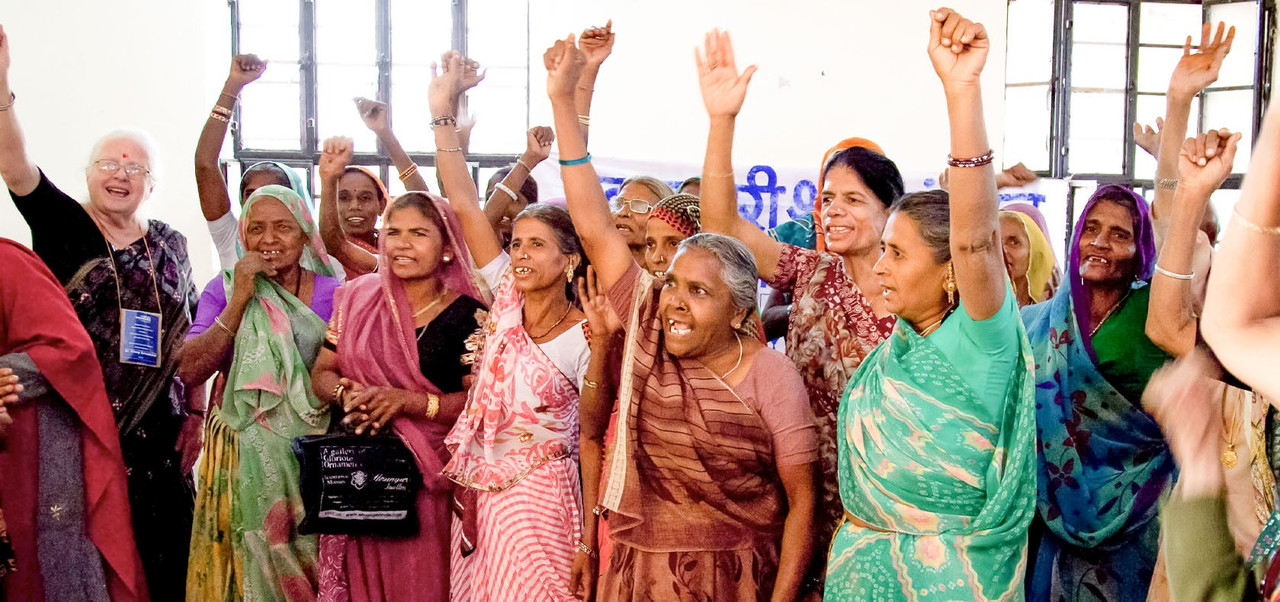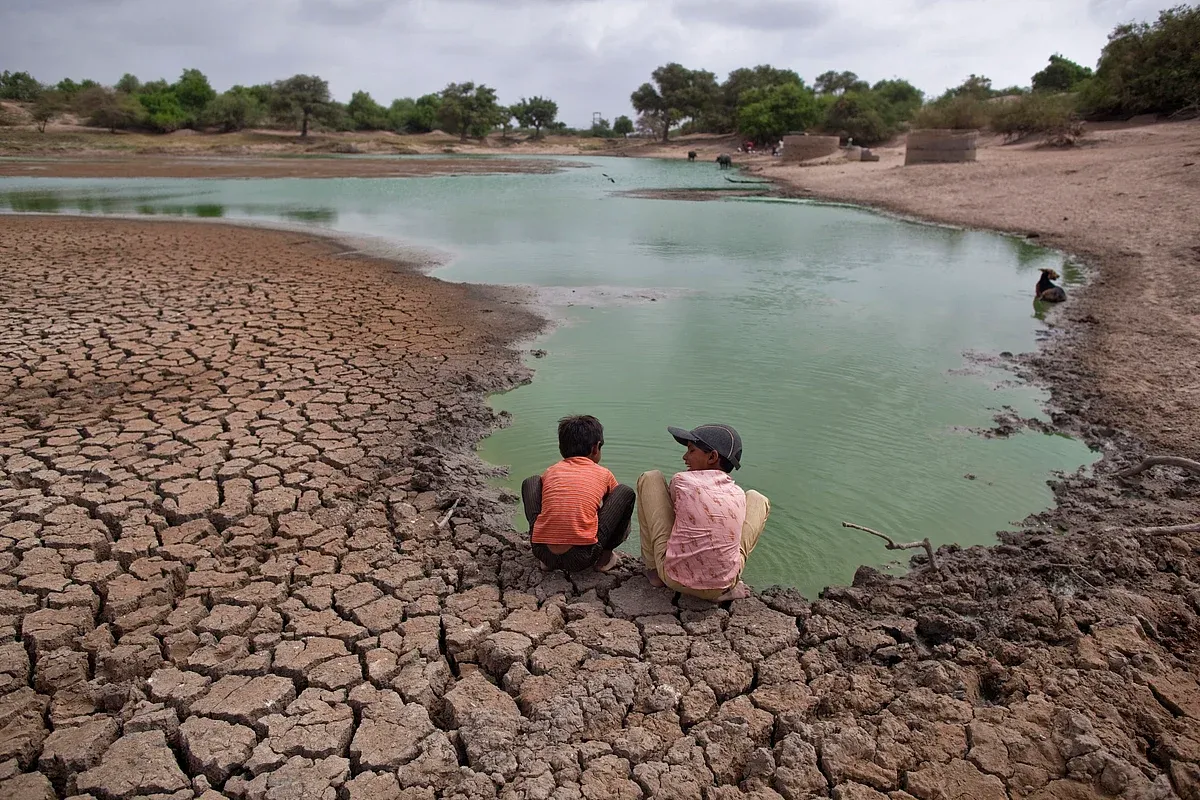In Latur, people don’t talk about rain in poetic terms. They talk about it like a memory that didn’t visit. Childhoods here are wrapped around dry taps, dusty wells, and long waits beside rusted water tankers. Ashok Patil knows this scene too well. He lived it. And perhaps, that’s why years later, when he stood in Ratnagiri watching rain pour down hills and vanish within hours, he felt that old restlessness return. He hadn’t planned to settle there. But when you come from thirst, and you see water being wasted, something inside doesn’t sit right. So he stayed—not as an engineer, not as an official, but as a man who refused to see water disappear where it could’ve stayed. His tools? A notebook, a spade, and lessons carried from drought-hit lands.
A Childhood of Cracks and Cans
Ashok’s early life wasn’t one of great hardship, but of constant compromise. His mother rose before sunrise to store whatever water the taps offered—if they offered anything at all. Sometimes they did. Mostly, they didn’t. By the time he turned twelve, Ashok had helped dig more holes than most grown men in his village—trenches, storage pits, and failed borewells. There were no handouts. People relied on instinct, tradition, and sweat. That lifestyle carved into him a quiet stubbornness. When he joined small rural initiatives in his twenties, water was always the focus. He wasn’t interested in fancy irrigation or gadgets. He paid attention to where rain fell, where it stood, and why it didn’t stay. Those observations stayed with him when he was sent on a short visit to Ratnagiri for a government survey. He expected lush land and rich groundwater. What he found was greenery on the outside, and dryness beneath.
So Much Rain, So Little Retained
It rains hard in Ratnagiri. Trees bend under the weight of it. Fields flood. But ask locals in February where they get drinking water, and the answer often points to tankers or distant sources. Ashok couldn’t believe it. "How can a place drown in July and dry in March?" he asked a sarpanch. The answer wasn’t technical—it was habitual. Water wasn’t stored. It wasn’t harvested. It just came, crashed, and escaped downhill. He followed a tiny creek that used to supply a tank in one settlement. It was now covered with shrubs and plastic. Nobody remembered it flowing. However, satellite photos showed that it had once been alive. Ashok started piecing it all together—natural slopes, blocked drains, missing bunds. The water hadn’t stopped coming. People had simply stopped saving it. So he rolled up his sleeves.
Tools of Change: Digging Without Funding
Ashok didn’t carry blueprints. He never waited for tenders or grants. His belief was simple—start with what’s there. In one Ratnagiri village, he helped kids dig a contour trench behind their school. That trench alone stopped hundreds of litres from flowing away each monsoon. In another hamlet, he restored an old well by guiding youth to remove trash, rebuild the wall, and redirect rain from rooftops into it. He revived temple ponds with help from elders. He dug with his own hands when labourers didn’t show. He even taught women’s groups how to inspect soak pits and recharge wells. Most people had never thought of water as something they could control. But once they saw it working, their mindset shifted. His philosophy was easy: water doesn’t need miracles, it just needs memory—and maintenance.
Women and Young Voices Lead the Flow

Ashok always believed that water work had to include those who carried the most burden. Women were disproportionately affected by the crisis in most households, trekking long distances, skipping meals, and washing kids in metal pots. He made sure they were at the front of the effort. In weekly circles, he explained simple things—how to collect rooftop water, how to check if a pit is full, how to repair cracks. Slowly, they took over. Some began running local committees that decided where to build next. Others kept records, tracked usage, and taught the same to younger girls. One school started a “water wall,” painted by students, that reminded them how every drop mattered. Ashok didn’t design it. The kids did. That, for him, was a bigger success than any newspaper article. The change wasn’t in structures—it was in ownership.
Results That Don't Shout—But Stay
Years have passed since Ashok first stepped into Ratnagiri’s-soaked fields. He still doesn’t live there permanently, but he visits often. His phone is filled with pictures—not of himself, but of overflowing tanks, green patches in April, and farmers holding up buckets with proud smiles. In some pockets, water tables have risen by a few feet. In others, communities no longer call for summer tankers. And in nearly all of them, people now speak of “next year’s rain” as something to prepare for—not pray about. Ashok is putting all his notes into a handwritten guide. Not digital. Just pages of sketches, local words, and instructions in Marathi. So even if he’s not around, the work can go on. His next goal? Take the same ideas back to Latur. Connect the drought-hit with the rain-blessed. Build a dialogue between places that suffer and those that waste. His dream isn’t just about stopping water from disappearing—but stopping knowledge from disappearing too.
Final Thoughts: One Drop at a Time
Ashok Patil may never receive a grand award. But that doesn’t bother him. When asked what keeps him going, he says, “Because I’ve lived thirst. And no one should live it if it can be fixed. What he’s built in Ratnagiri isn’t just a series of tanks or trenches—it’s a story of how one man’s memory of a dry village helped another village avoid becoming one. The tools were simple. The change was quiet. But the impact? It runs deep—just like the water he worked so hard to keep.













